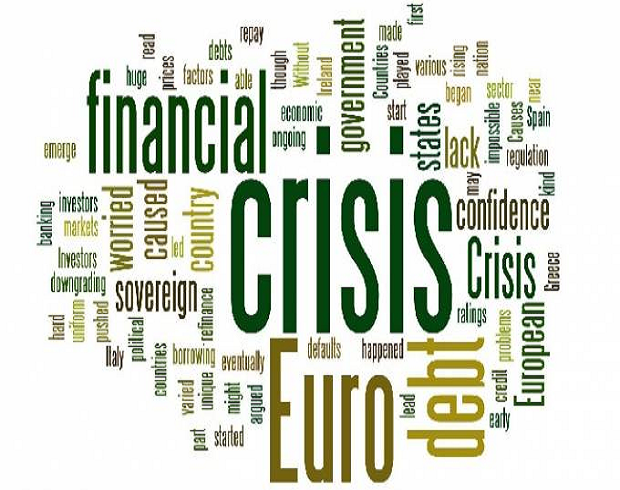[vc_row][vc_column width=”2/3″][vc_column_text]A few weeks ago I received a random text message from a credit reference bureau: “URGENT: This is to notify you of some NEW information on your CREDIT BUREAU records. Send URGENT to 21272 to check now.” (Sic).
It certainly got my attention, and I did exactly as I was exhorted to. I received the credit report on email and discovered that erroneous information had been sent by my bank to the bureau. Did I say erroneous? It was downright wrong. The report related to a six year old dispute on a credit card that in my view had been resolved and forgotten about two years ago. But somehow the dispute resolution slipped through the cracks and 2 years later my name was sent to the credit reference bureau as a defaulter. I bristled in anger. A negative report meant that my personal credit rating would be affected and this would impact on any future borrowing that I may consider undertaking. It also meant that any position for which I would be considered for that requires a positive credit report would be compromised. (A negative credit rating is a mortal sin right below being an adjudged bankrupt in the ten commandments of self-respecting citizens.)
The vein on my right temple throbbed furiously as my legal training kicked in: Never go to a gun battle armed with a toothpick. I googled and found the Credit Reference Bureau (CRB) Regulations 2013, issued by the Cabinet Secretary for the National Treasury and gazzetted on 17th January 2014. A slightly lengthy document that isn’t your staple bedside reading, but one that is certainly pertinent for anyone who uses banking services in Kenya. The regulations were created to provide a legal framework for the provision of critical information on the financial behavior of individuals and businesses in the country. The regulations extensively provide guidelines on how credit information should be shared. Why should this interest you? As a consumer of banking services, your bank holds in its puissant hands the power to destroy your reputation with one flick of a button: SEND. A bounced cheque, a defaulted loan or credit card, an account on an overdrawn status., the examples are numerous. But the bank is well within its rights to let its industry brethren know that you are not worthy of the fake leather shoes that you are strutting about in pretending to subscribe to the ten commandments hereinabove mentioned. As a consumer, you are also well within your rights to know who is sending information about you, and the nature of that information. And since the regulations were most likely drafted by ordinary mortals who have experienced the aftermath of a financial peccadillo or two, they took care of that exact fact under Section 50 (1) which reads “ An institution shall (a) notify the customer within one month before a loan becomes non-performing that the institution shall submit to a Bureau the information on the loan immediately it becomes non performing.” I bet you’re sitting at the edge of your seat waiting for me to tell you that I received that awe-inspiring letter from my bank. Well, hang on to your hats a little bit. Section 50 (1) (b) highlights my bank’s obligations to me even further by saying that it should “notify each customer, within thirty days of the first listing, that his name has been submitted to all licensed Bureaus.” Can you hear that? Exactly! What you hear are chirping crickets, because I received absolutely nothing. If it wasn’t for that CRB’s urgent message – of which I have no doubt was motivated to ensure I sent a highly priced text message to request for a “free” report – I would never have known that I was in trouble.
But this story does indeed have a happy ending. Since I knew who exactly needed to receive a sweetly worded missive reflecting my umbrage at the misinformation that was now circulating at CRBs, I got to typing my slight displeasure (please apply sarcasm font as you read this part). A few calls and emails later, my bank quickly rectified the situation and sent a delete record request to the CRBs followed by a profuse apology for which I am grateful for the kind attention that they gave. But they did it because I knew exactly who to send flowery emails to. Not everyone else does.
Two years ago a company that had borrowed funds from a bank, against which a close friend who we shall call Jane had signed personal guarantees as a co-director, underwent some financial distress. The loan was eventually repaid in full. A full year after that loan was repaid, said bank sent a report to the CRBs that succinctly stated that while there was no loan outstanding, Jane had a history of default. Not the company, mind you, Jane specifically. There was zero communication from that bank that they were sending a negative report, and I can’t say I blame them. How do you draft that letter? “Dear Jane, remember that loan for Company X that you signed a personal guarantee for? It was repaid in full last year. But our grubby fingers are itching to hit the SEND button so we feel now is a good time to let all the CRBs in Kenya know that a company you are associated with underwent stress, but the loan was repaid in full. Please don’t catch feelings, it’s never that serious. Yours truly, Totus Ignoramus.”
The next time you see a message titled URGENT from a CRB, it’s not from the thoroughly bored chaps over at Kamiti Maximum Call Centre. It needs your urgent attention. Your bank is talking about you behind your back. Assuming they are doing what the above two banks are doing, it’s likely that they are not informing you. Girdle your loins and ask for your report. Then brace yourself for what you might find.
[email protected]
Twitter: @carolmusyoka[/vc_column_text][/vc_column][vc_column width=”1/3″][/vc_column][/vc_row]

 carolmusyoka consultancy
carolmusyoka consultancy
 @carolmusyoka
@carolmusyoka

